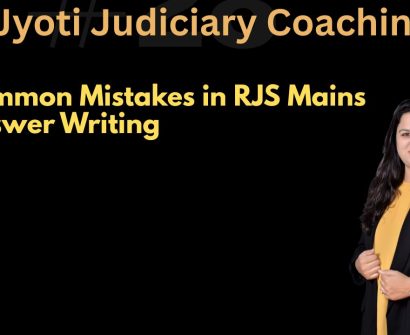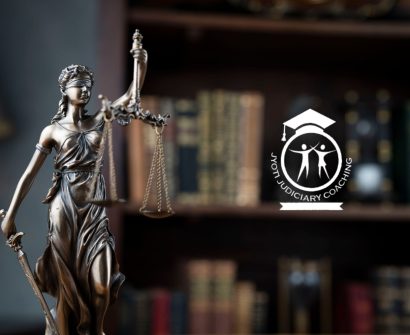
Rights cannot be absolute. No right can be conceived except in an ordered society. The right and freedom of every person has to be accommodated with the equal claims of others to right and freedom. Therefore, every right has to be subject to [judiciary coaching in delhi] reasonable restrictions in the interest of maintaining social order and for being adjusted with the claim of others.
Framers of Indian Constitution expressly mentioned the ground on which the restrictions can be imposed by law. It is not that the court have no meaningful role to play: the restrictions have to be related to the permitted grounds and they have to be reasonable. Article 19 of the constitution furnishes the best example [delhi judiciary coaching] of the arrangement preferred in the Indian Constitution. Clause (1) of the article enumerates the rights and cluse (2) to (6) of Article 19 mention the ground for imposing restrictions on the rights. The fact that grounds of restrictions have been specifically enumerated in the constitution has been interpreted by the Supreme Court as indicative of the intention of the framers that they are exhaustive.
However, there are few article which do not follow the above pattern. Thus, article 14 guarantees the right to equality and to equal protection of the laws in seemingly absolute language. But in series of decision of Supreme Court has held that the guarantee does not inhibit reasonable classification. Similarly, article 30(1) provides that religious and linguistic minorities have the right to establish and administer educational [rjs coaching in jaipur] institution of their choice. Even though the article does not contain any express provision for limitations on the above right, the Supreme Court has held that the right to administer does not include right to maladminister and that the state can exercise its regulatory power reasonably in the interest of the excellence of the institution. Therefore, like other rights fundamental rights are also not absolute in nature as above said that every right is accommodated upon the right of others right so for welfare society it is necessary that there should be reasonable restrictions upon such rights else absolute right will results into the anarchy.
Fundamental Rights granted to person, citizen or some specified group
All the fundamental right are not available to all the people. Some rights may be limited to a specified group. This is the case with the right given under Article 30 (1) which is available only to religious and linguistic minorities. [ judiciary coaching in delhi ] A few others are available to the citizen alone. In this category fall the rights under Article 15,16,19 and 29. Though article 30(1) does not expressly mention citizenship as a condition for claiming the right, the rest of the rights are available to all the persons irrespective of the fact whether one is citizen or not.
Are Fundamental rights are available to companies and corporation?
There is no doubt that the fundamental rights which are given to persons generally are available to artificial person as well. [ delhi judiciary coaching ] But, since the Indian Citizenship Act, 1955 does not confer citizenship on any person other than human being, companies and corporation are not entitle to claim the benefit of fundamental rights available to citizen alone.









